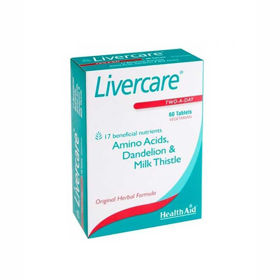Customer question:
What can elevated liver enzymes indicate? Anonymous customer's question
Pharmacist's answer:
Elevated liver enzymes in the blood can be a sign of various problems with the liver or other organs in the body. Liver enzymes such as alanine aminotransferase (ALT), aspartate aminotransferase (AST), alkaline phosphatase (ALP), and gamma-glutamyl transferase (GGT) are essential indicators of liver function.
Elevated levels of these enzymes can indicate a variety of conditions, including the following possible conditions:
- Hepatitis: liver inflammation, which can be caused by viruses (e.g., hepatitis A, B, C), alcohol, drugs, or other substances.
- Fatty liver (steatosis): accumulation of fat in the liver, which can cause an increase in enzymes, especially ALT.
- Cirrhosis of the liver: advanced scarring of the liver that reduces the function of the organ.
- Alcoholic liver damage: elevated levels of enzymes, especially AST and ALT, can be the result of excessive alcohol consumption.
- Bile Duct Obstruction: Blockage of the bile ducts can cause bile stasis and an increase in ALP.
- Gallbladder diseases: inflammation or gallstones can affect liver enzymes.
- Heart failure: Heart failure can cause an increase in AST.
- Drugs and toxic substances: certain drugs or toxic substances can cause liver damage.
- Pancreatic Diseases: Sometimes, pancreatic diseases can affect liver enzymes.
- Liver cancer: Liver cancer can cause elevated enzymes.
It is important to note that elevated levels of liver enzymes in themselves are not specific to a particular disease but are only an indicator of problems with the liver or other organs. Additional laboratory, imaging, and clinical tests are usually necessary to accurately diagnose and determine appropriate therapy. If you have elevated liver enzymes, see your doctor to determine the cause and plan your next steps.
Interesting read: How to lower s-alt
Interesting reading: Elevated liver tests cause












 Facebook
Facebook
 Instagram
Instagram
 info@moja-lekarna.com
info@moja-lekarna.com

